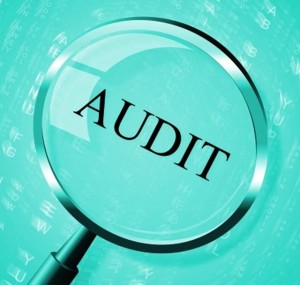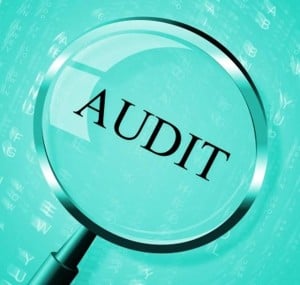Q: We received two bids from different accounting firms for the annual audit of our association. One was for $5,000 and the other was for $1,500. Why is there such a big difference in price?
 A: When offering bids to potential clients for services, a public accounting firm generally estimates the time commitment necessary to complete the services requested by the client. Once this estimate is derived the firm will then generate an audit fee based upon the firm’s hourly rates. Therefore, a significantly lower bid means either (i) the firm has a lower hourly billing rate, which likely means less experienced individuals are working on the engagement, or (ii) the firm is spending less time on the engagement and sets its price accordingly. Either way, a significantly lower price should raise certain concerns when evaluating bids.
A: When offering bids to potential clients for services, a public accounting firm generally estimates the time commitment necessary to complete the services requested by the client. Once this estimate is derived the firm will then generate an audit fee based upon the firm’s hourly rates. Therefore, a significantly lower bid means either (i) the firm has a lower hourly billing rate, which likely means less experienced individuals are working on the engagement, or (ii) the firm is spending less time on the engagement and sets its price accordingly. Either way, a significantly lower price should raise certain concerns when evaluating bids.
When a public accounting firm performs an audit, there are certain standards and procedures the firm must perform and follow in order for the audit to be completed in accordance with auditing standards generally accepted in the United States of America. These standards, which all public accounting firms performing audits are supposed to follow, require the auditors to obtain an understanding of the Association and its environment, including its system of internal control, in order to assess the risk of material misstatement (which is the risk that the financial statements will contain a significant misstatement whether by error or by fraud). The auditor then uses their determined risk, amongst other factors, to determine the procedures and tests it will perform during the audit.
While all public accounting firms are not equal and perform audits in different ways, using different procedures, the Board of Directors, through their own inquiries and observations, should be able to ascertain how comprehensive an audit is being performing. As a Board member ask yourself certain questions, such as: did the auditor interview our Board of Directors? Did the auditor physically show up to our Association at any point during the audit? How much supporting documentation did the auditor request? Did the auditor review any invoices? Did the auditor perform any tests of our internal controls? If the answer to any of these questions is “no” there would be a substantial reduction in the estimated time necessary to perform the audit, which, in turn, would lead to lower audit fees.
Q: Now that that I understand the difference in fees, which one should I choose?
A: While, on the surface, lower audit fees may sound like a great idea, the Board of Directors must consider this: “what sacrifices are we making in order to get these lower fees?” All members of the Board of Directors, by being elected to office, have a fiduciary responsibility to protect and safeguard the assets of the Association and its members to the best of their ability. Therefore, when determining which public accounting firm to engage as the Association’s auditor, the Board of Directors should evaluate all aspects of the potential firm, instead of simply the cost to the Association.
Given the current economic environment in the United States, there are likely financial pressures influencing many unit owners, homeowners, and employees. An individual with increased financial pressures creates a motive for potential fraud. Once individuals encounter tough times a “survive at any cost” mentality has the potential to develop. This is when an individual rationalizes to themselves the need to steal in order to provide for themselves or their family. An individual may also rationalize fraud by telling themselves, “I’ll pay the money back,” “they will never miss the funds,” or “they don’t pay me enough.” These two factors combined with the opportunity to perform the fraud are the three sides to, what is commonly known as, the fraud triangle. In any Association, the Board of Directors may not be able to control the pressures and/or rationalization sides to the triangle due to the inherent limitations associated with each. However, the Board of Directors is able to minimize the opportunity side to the triangle, by creating an environment and implementing procedures, for example, a thorough audit of the Association’s books and records – therefore, reducing the Association’s fraud risk.
In closing, an Association’s Board of Directors should be cognizant of the fact that they have the ability to minimize the Association’s fraud risk by carefully choosing the Association’s auditor. We suggest meeting and interviewing a potential auditor prior to engaging a firm in order to perform its due diligence and obtain as much information possible regarding the firm’s: history, reputation in the industry, procedures they perform, expertise within the firm, etc. When it comes to audit fees, like most other services, you get what you pay for.

